Top 20 stories in Science & Space: August 5 - 12th, 2016
This week brings us an amazing panoramic photo from Curiosity, our little superhero rover doing it's thing on Mars, along with an amazing selection of pictures from the shortlisted entries for the Insight Astronomy Photographer of the Year award. We also found out that being bad-tempered and pessimistic helps you to earn more, and live longer with a healthier marriage, and that there may be a positive link between video games and academic performance. Just don't be reading this while you're riding in a car or you may get carsick, but at least now we may know why it happens!
-
-
1 +19y+ ago
Why it pays to be grumpy and bad-tempered

Being bad-tempered and pessimistic helps you to earn more, live longer and enjoy a healthier marriage. It’s almost enough to put a smile on the dourest of faces.
Continue to source Share Discuss
Submitted on August 11th 2016 by gladsdotter with 7 comments
-
2 +19y+ ago
360 panorama from Curiosity from just a few days ago
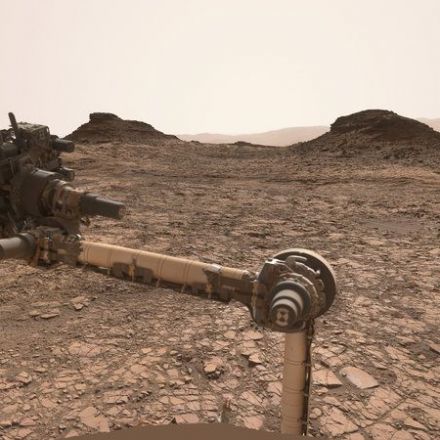
Official description: Curiosity approaching Murray Buttes locality on Sol 1421.
Continue to source Share Discuss
Submitted on August 11th 2016 by ckshenn with 1 comments
-
3 +19y+ ago
The Particle That Wasn’t

Physicists working at the Large Hadron Collider reveal that mounds of data did not support the possibility of a new particle. By Dennis Overbye.
Continue to source Share Discuss
Submitted on August 5th 2016 by AdelleChattre
-
4 +19y+ ago
We just got even weirder results about the 'alien megastructure' star
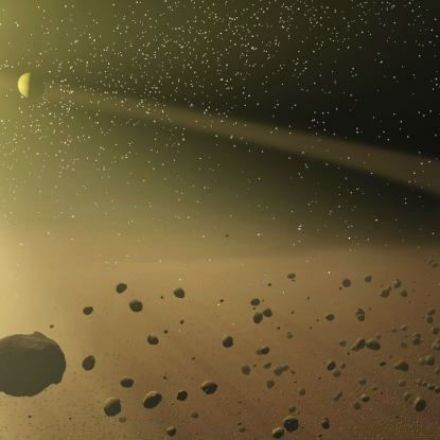
Last year, the world freaked out over the discovery of a star that was dimming and flickering so erratically, it couldn't be explained by any known natural phenomenon - prompting one scientist to actually go there and suggest it could be evidence of some kind of alien megastructure. Follow-up studies have revealed no signs of alien behaviour, but NASA's Kepler Space Telescope has just spent around 1,600 days observing the star, and things have gotten a lot weirder.
Continue to source Share Discuss
Submitted on August 7th 2016 by 8mm with 8 comments
-
5 +19y+ ago
Reading Makes You Carsick Because Your Brain Thinks It’s Being Poisoned

So many mixed signals. So much nausea.
Continue to source Share Discuss
Submitted on August 8th 2016 by gladsdotter with 11 comments
-
6 +19y+ ago
From Sci Fi to reality: Unlocking the secret to growing new limbs
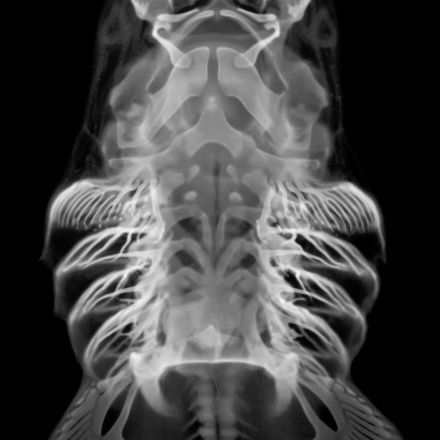
Many lower organisms retain the miraculous ability to regenerate form and function of almost any tissue after injury. Humans share many of our genes with these organisms, but our capacity for regeneration is limited. Scientists at the MDI Biological Laboratory in Bar Harbor, Maine, are studying the genetics of these organisms to find out how regenerative mechanisms might be activated in humans. The ability of animals to regenerate body parts has fascinated scientists since the time of Aristotle.
Continue to source Share Discuss
Submitted on August 7th 2016 by lexi6
-
7 +19y+ ago
Astronomy Photographer of the Year 2016 shortlist - in pictures
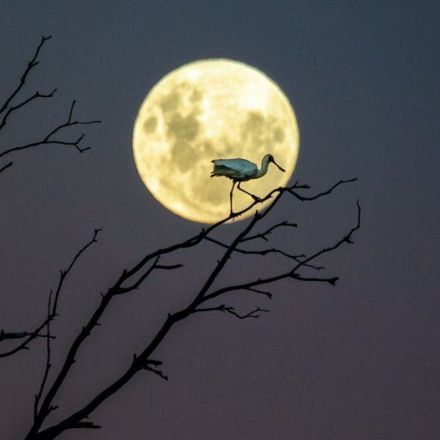
Gorgeous galaxies and stunning stars make up this selection of pictures from the shortlisted entries for this year’s Insight Astronomy Photographer of the Year award. By Eric Hilaire.
Continue to source Share Discuss
Submitted on August 10th 2016 by AdelleChattre with 2 comments
-
8 +19y+ ago
Is Most Published Research Wrong?
Mounting evidence suggests a lot of published research is false.
Continue to source Share Discuss
Submitted on August 11th 2016 by rti9 with 2 comments
-
9 +19y+ ago
Scientists discover light could exist in a previously unknown form
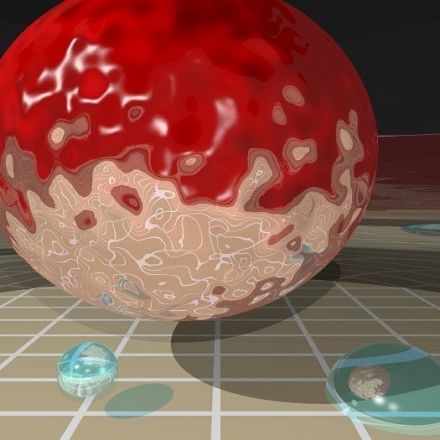
New research suggests that it is possible to create a new form of light by binding light to a single electron, combining the properties of both.
Continue to source Share Discuss
Submitted on August 5th 2016 by Gozzin
-
10 +19y+ ago
The secret of taste: why we like what we like

How does a song we dislike at first hearing become a favourite? And when we try to look different, how come we end up looking like everyone else? By Tom Vanderbilt.
Continue to source Share Discuss
Submitted on August 5th 2016 by AdelleChattre
-
11 +19y+ ago
Our Ancestors Used Tools to Hunt 250,000 Years Ago, Study Finds
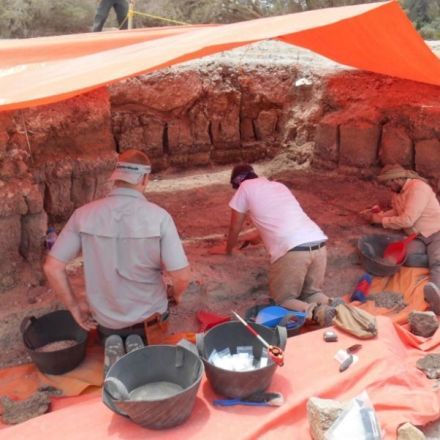
Researchers from the University of Victoria and colleagues in the US and Jordan just unearthed the oldest evidence of protein residue on stone tools, suggesting that early humans living 250,000 years ago in the Middle East were already using instruments to obtain food from animals. Writing in the latest edition of the Journal of Archaeological Science, paleoanthropologist April Nowell and her colleagues explained they excavated a total of 10,000 stone tools from a site known as Shishan Mars, a desert oasis located close to Azraq, Jordan.
Continue to source Share Discuss
Submitted on August 9th 2016 by messi
-
12 +19y+ ago
Study reveals culprit behind Piltdown Man, one of science’s most famous hoaxes
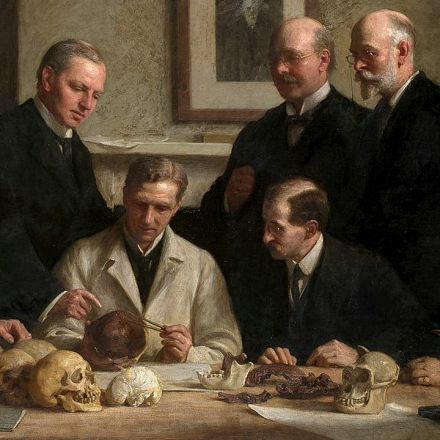
New techniques finger 19th century amateur fossil hunter in famous forgery. By Michael Price.
Continue to source Share Discuss
Submitted on August 10th 2016 by AdelleChattre
-
13 +19y+ ago
Positive link between video games and academic performance, study suggests

Children who play online video games tend to do better in academic science, maths and reading tests, according to an analysis of data from over 12,000 high school students in Australia. The study found that students who played online games almost every day scored 15 points above average in maths and reading tests and 17 points above average in science. However, the study’s methodology cannot prove that playing video games were the cause of the improvement.
Continue to source Share Discuss
Submitted on August 8th 2016 by hedman with 2 comments
-
14 +19y+ ago
Ghost particles may explain why gravity is so surprisingly weak
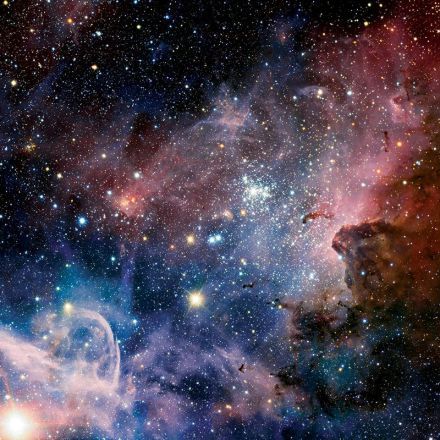
Gravity is weaker than it should be – a new theory suggests that’s because the universe is full of invisible particle families which ignore each other.
Continue to source Share Discuss
Submitted on August 5th 2016 by AdelleChattre
-
15 +19y+ ago
'Discovery of the year': sunken British ship found in Russian Arctic
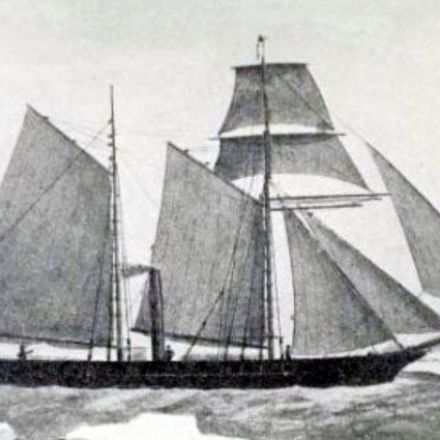
Researchers have discovered the wreck of a pioneering British steamship that sank in the Russian Arctic in 1878. The Thames was a 120-tonne steamship captained by decorated explorer Joseph Wiggins during his attempts to open a trade route between the UK and Siberia through the Arctic Ocean. Two researchers from the Russian Geographical Society, which is chaired by President Vladimir Putin, found its wreck in shallow waters on the Yenisei river near the village of Goroshikha just south of the Arctic Circle.
Continue to source Share Discuss
Submitted on August 9th 2016 by zobo with 1 comments
-
16 +19y+ ago
A molecule called ‘Sandman’ could help solve the ‘mystery of sleep’

Sleep just doesn't make sense. "Think about it," said Gero Miesenböck, a neuroscientist at the University of Oxford. "We do it. Every animal with a brain does it. But obviously it has considerable risks." Sleeping animals are incredibly vulnerable to attacks, with no obvious benefit to make up for it — at best, they waste precious hours that could be used finding food or seducing a mate; at worst, they could get eaten. "If evolution had managed to invent an animal that doesn’t need to sleep ... the selective advantage for it would be immense," Miesenböck said.
Continue to source Share Discuss
Submitted on August 6th 2016 by hxxp
-
17 +19y+ ago
New Theory of the Higgs Boson Could Explain Why Gravity Is So Weak
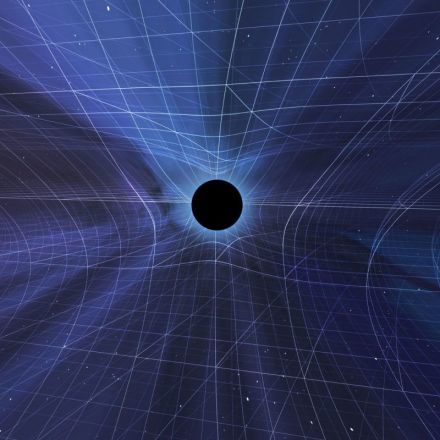
A new theory suggests that missing extra copies of the Higgs boson might explain why gravity is so much weaker than it should be.
Continue to source Share Discuss
Submitted on August 6th 2016 by drunkenninja
-
18 +19y+ ago
The Audacious Plan to Save This Man’s Life by Transplanting His Head

And what would happen if it actually works. By Sam Kean.
Continue to source Share Discuss
Submitted on August 9th 2016 by gladsdotter with 1 Related Links:
1. This Man Will Get the World's First Human Head Transplant Procedure Added by gladsdotter on August 9th 2016.
-
19 +19y+ ago
Icy Dwarf Planet Ceres May Have a Warm Heart
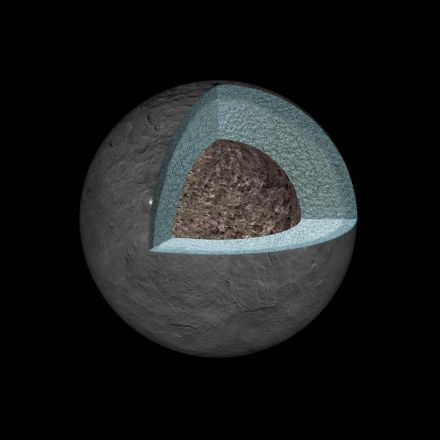
Under the surface of the dwarf planet Ceres are strange jumbled zones that are mixes of ice and rock, a new study finds. This research suggests that Ceres might still be warmed by radioactive material in its interior, scientists say. With a diameter of about 585 miles (940 kilometers), Ceres is by far the biggest member of the asteroid belt located between Mars and Jupiter. Previous remote analysis of Ceres using ground- and space-based telescopes suggested that it was not as dense as other large asteroids such as Vesta.
Continue to source Share Discuss
Submitted on August 7th 2016 by hedman
-
20 +19y+ ago
Would You Swallow a Pill Robot?
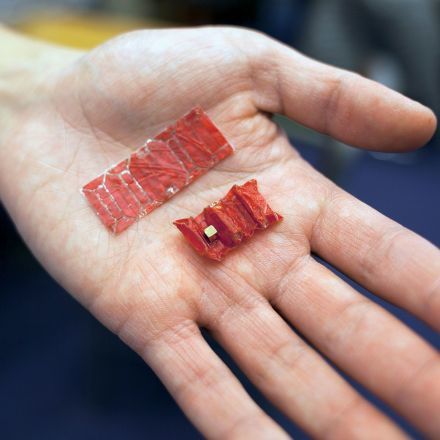
This robot unfolds like an origami after it’s swallowed. “The idea that you could repair a human body by swallowing something, instead of making cuts, is amazing,” says innovator Daniela Rus.
Continue to source Share Discuss
Submitted on August 5th 2016 by drunkenninja
-
-
Here are this week's top five Science & Space tribes:
/t/research 214 posts, 86 comments, 909 votes.
/t/science 162 posts, 35 comments, 704 votes.
/t/futurism 69 posts, 33 comments, 321 votes.
/t/space 52 posts, 20 comments, 168 votes.
/t/neuroscience 52 posts, 50 comments, 264 votes.
Note: Tribes can only be featured once every four weeks. Validate your tribe to be included on this list!
-
Other useful links:
Follow us at @Snapzu_Science on Twitter.
Have a blog? Let's partner up to enhance your blog by running your own Snapzu tribe and open up new revenue opportunities!
See you next week!
Note: Are you new to Snapzu and want to participate with other people just like you? Request an invite!





















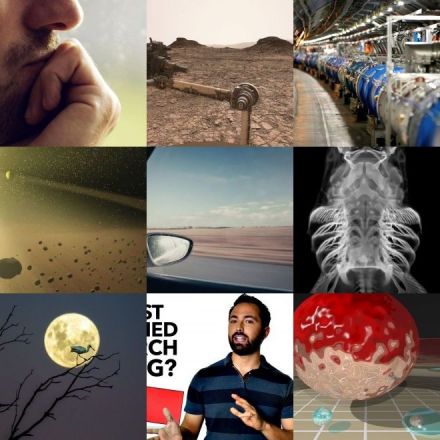


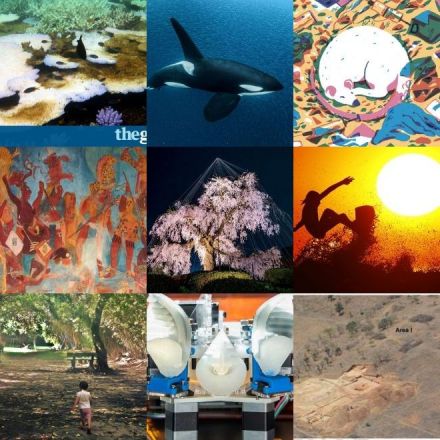
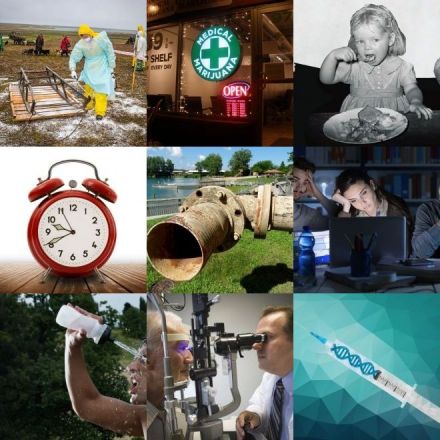
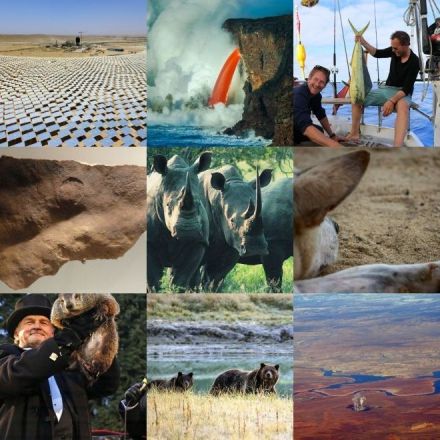
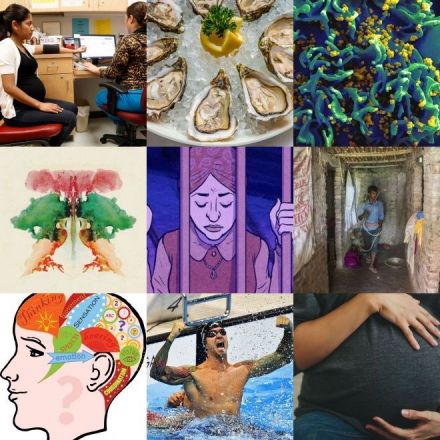
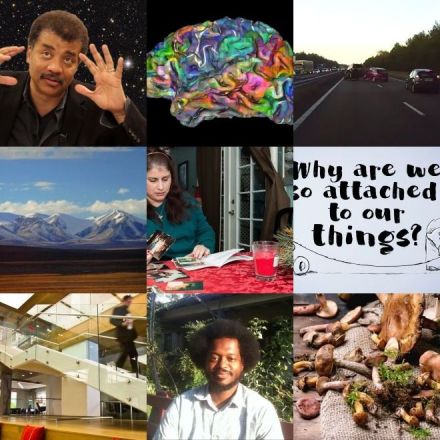
Join the Discussion
WoW this thread si a really valiant effort. keep up the good work!